Remediation of Basic Science in Integrated Blocks
The session will define remediation and describe the unique challenges of struggling medical students, including information to guide course directors and students through the process. Drs. Guerrasio and Bonaminio will highlight teaching tips to improve our learners’ studying and test taking skills. Examples of remediation programs will also be discussed.
Trust and Remediation: Entrustable Professional Activities and Trust Decisions
Professionalism is difficult to define, and both professionalism and unprofessional activities are too often described in terms that resemble the old adage: “you will know it when you see it.” Activities that are difficult to define and quantitate are also difficult to remediate, and leave the educator with the difficult and frustrating task of accessing a remedial endpoint for an attribute that is difficult to define. This program will examine the important role of trust in the training of medical professionals. How do we develop, evaluate and remediate trust in the training of medical professionals? The new paradigm in undergraduate medical education assessment: Entrustable Professional Activities (EPAs), has made the incorporation of trust a vital part of medical education. Medical Educators and patients both want the same thing in student health care providers. The patient needs to trust that the team member who is in a learning role is knowledgeable, yet understands the limits of his/her knowledge, is compassionate, can communicate with them in a way they can understand, who will be there when needed; in a word, one they can trust. The preceptor also needs to know the learner has these attributes, and wants a student who is able to ask for, receive and react to, feedback. While it may seem obvious that trust underlies all educational and medical decision making, trust is difficult to access and even more difficult to remediate if it is lacking or lost. There is evidence that physician-learners are poor at accessing their own capabilities, making feedback a critical part of their education, and yet, honest, constructive feedback is both difficult to give and difficult to receive. EPAs may help educators give this feedback by breaking down Entrustable Professional Activities into individual competencies which can be evaluated and discussed. Using a series of case examples this webinar is designed to help the educator develop an emotional intelligence based strategy to help provide better communication and remediate trust based decision making.
Sharing Assessment Information: Why, How, and What to Consider
Competencies in medical education are developed longitudinally, and competency is rarely achieved within one course, clinical rotation, or educational unit. Learners gain competency at differing paces, and some require more time or practice to achieve one or another competency. Sharing assessment information across traditional course boundaries may improve efficiency and support more personalized educational experiences. As a group, educators have some ambivalence about sharing assessment information, with the greatest concern that sharing assessments may introduce bias. This webinar will summarize existing literature on the subject, the case for and against sharing assessment information, and considerations in establishing a process for sharing assessment information.
Remediation of Gaps in Clinical Skills–One Size Fits One
Remediation of gaps in clinical skills requires an individualized approach to the learner, the problem, and the clinical setting in which the gaps are noted. Having the learner repeat a standardized patient skills encounter alone, for example, will likely not result in the desired demonstration of adequate skills which were absent on initial assessment. However, a methodical assessment of the learner’s cognitive or behavioral errors, followed by progressive coaching to an acceptable endpoint, is usually successful in achieving targeted skills acquisition. This session will discuss methods of analyzing clinical skills encounters for, and of remediating, common cognitive or behavioral learning issues in ways that are respectful of the learner and that contribute to durable improvement in clinical skills. We will specifically discuss teaching approaches that have been implemented successfully in clinical skills remediation situations. During this session the participant will learn to: 1. Analyze the learners cognitive or behavioral error 2. Create a individualized remediation plan 3. Assess the effectiveness of the plan
Remediation of “High Stakes” Professional Exams
(USMLE Step-1, COMLEX, PANCE) Aubrey Knight will discuss USMLE Step-1. Nicole Wadsworth will describe the multidisciplinary approach to identifying and supporting the students who are most at risk for failing Level 1 of the COMLEX exam. Pat Kenney-Moore Physician assistant education is a condensed and abbreviated version of allopathic medical education that occurs over an average of 27 months. The licensing examination for PAs (Physician Assistant National Certifying Examination or PANCE) is uniquely situated to occur after graduation, creating challenges in identifying at risk students early in order to ameliorate potentially negative outcomes after graduation. This portion of the webinar will highlight issues related to PA student remediation and the approach to graduates who are unsuccessful in passing the PANCE
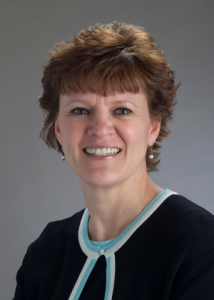 Dr. Bonaminio received her B.S. degree in Biology from Bowling Green State University and her M.S. and Ph.D. degrees in Molecular Genetics from The Ohio State University. She completed a postdoctoral fellowship in Medical Genetics at Stanford University and the Hedwig van Ameringen Executive Leadership in Academic Medicine (ELAM) Program for Women at Drexel University College of Medicine.
Dr. Bonaminio received her B.S. degree in Biology from Bowling Green State University and her M.S. and Ph.D. degrees in Molecular Genetics from The Ohio State University. She completed a postdoctoral fellowship in Medical Genetics at Stanford University and the Hedwig van Ameringen Executive Leadership in Academic Medicine (ELAM) Program for Women at Drexel University College of Medicine.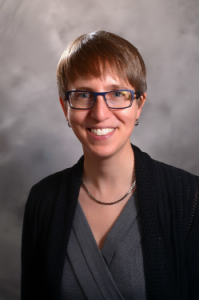 Jeannette Guerrasio, MD is an Associate Professor of Medicine in the Department of General Internal Medicine, Hospitalist Section, at the University of Colorado and author of Remediation of the Struggling Medical Learner. She graduated from Albany Medical College and completed her residency at the University of Connecticut. As the Assistant Program Director of the Internal Medicine Residency, Dr. Guerrasio developed a pioneering approach to improve the educational experience of learners, by creating individualized learning plans for struggling residents and medical students. She was named Director of Remediation and Individualized Learning Plans, for the School of Medicine for both Undergraduate and Graduate Medical Education to further expand access to her program. Her research explores understanding and early identification of at risk learners and remediation methods and outcomes. In addition to resident and medical student education, she is committed to the clinical care of hospitalized patients, with a focus on inpatient geriatrics. She has contributed to several quality improvement projects at the University of Colorado Hospital to improve geriatric assessments and to decrease delirium, functional decline, and urinary tract infections in this vulnerable population.
Jeannette Guerrasio, MD is an Associate Professor of Medicine in the Department of General Internal Medicine, Hospitalist Section, at the University of Colorado and author of Remediation of the Struggling Medical Learner. She graduated from Albany Medical College and completed her residency at the University of Connecticut. As the Assistant Program Director of the Internal Medicine Residency, Dr. Guerrasio developed a pioneering approach to improve the educational experience of learners, by creating individualized learning plans for struggling residents and medical students. She was named Director of Remediation and Individualized Learning Plans, for the School of Medicine for both Undergraduate and Graduate Medical Education to further expand access to her program. Her research explores understanding and early identification of at risk learners and remediation methods and outcomes. In addition to resident and medical student education, she is committed to the clinical care of hospitalized patients, with a focus on inpatient geriatrics. She has contributed to several quality improvement projects at the University of Colorado Hospital to improve geriatric assessments and to decrease delirium, functional decline, and urinary tract infections in this vulnerable population.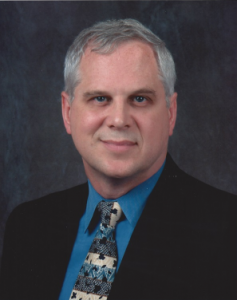 Dr. Bryan Martin is the Immediate Past President of the American College of Allergy, Asthma and Immunology (ACAAI). He is currently an Emeritus Professor of Medicine at The Ohio State University where he previously served as the Associate Dean for Graduate Medical Education, the Designated Institutional Official, the Associate Medical Director of University Hospital and until 2015 as the Founding Director of the Allergy and Immunology Fellowship.
Dr. Bryan Martin is the Immediate Past President of the American College of Allergy, Asthma and Immunology (ACAAI). He is currently an Emeritus Professor of Medicine at The Ohio State University where he previously served as the Associate Dean for Graduate Medical Education, the Designated Institutional Official, the Associate Medical Director of University Hospital and until 2015 as the Founding Director of the Allergy and Immunology Fellowship.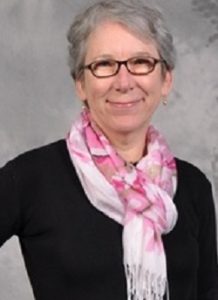 Dr. Cleary is Professor of Medicine, SUNY Distinguished Teaching Professor, and Vice President for Academic Affairs at Upstate Medical University in Syracuse, NY. She is a former clerkship director, former associate dean for curriculum, and has collaborated with colleagues on presentations and literature on the topic of sharing assessment information.
Dr. Cleary is Professor of Medicine, SUNY Distinguished Teaching Professor, and Vice President for Academic Affairs at Upstate Medical University in Syracuse, NY. She is a former clerkship director, former associate dean for curriculum, and has collaborated with colleagues on presentations and literature on the topic of sharing assessment information.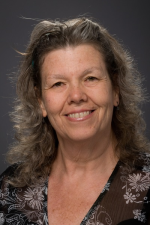 Dr. Nicholas is the Director of Simulation Education and Operations for the University of Vermont (UVM) Clinical Simulation Laboratory (CSL) which serves the Colleges of Medicine, College of Nursing and Health Sciences, and the UVM Medical Center. The CSL is dually accredited by the Society for Simulation in Healthcare (SSH) and the American College of Surgeons. As simulation educational consultant, she works with faculty to integrate simulation based educational teaching and assessment activities into formal curriculum, programming and continuing healthcare education. Dr Nicholas is the Director of Clinical Skills Curriculum for the UVM Larner College of Medicine. She oversees all M1-M4 clinical skills curriculum and assessment including remediation process. She is an Assistant Professor in OB-GYN and Family Medicine and retired from her private practice after 35 years.
Dr. Nicholas is the Director of Simulation Education and Operations for the University of Vermont (UVM) Clinical Simulation Laboratory (CSL) which serves the Colleges of Medicine, College of Nursing and Health Sciences, and the UVM Medical Center. The CSL is dually accredited by the Society for Simulation in Healthcare (SSH) and the American College of Surgeons. As simulation educational consultant, she works with faculty to integrate simulation based educational teaching and assessment activities into formal curriculum, programming and continuing healthcare education. Dr Nicholas is the Director of Clinical Skills Curriculum for the UVM Larner College of Medicine. She oversees all M1-M4 clinical skills curriculum and assessment including remediation process. She is an Assistant Professor in OB-GYN and Family Medicine and retired from her private practice after 35 years.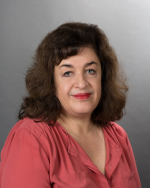 Dr. Camilla Curren is an Assistant Clinical Professor of Internal Medicine at OSU Medical Center and of Pediatrics at Columbus Children’s Hospital, and serves as Director of Longitudinal Groups for the newly integrated Lead.Serve.Inspire Curriculum at OSU College of Medicine in Columbus, Ohio. She is the recipient of numerous teaching awards from the OSU College of Medicine including the 2016 Master Teacher Award from Courage to Teach and the 2016 Distinguished Educator Award from the College of Medicine and the 2015 Alumni Faculty Teaching Award. Dr. Curren works with and mentors faculty in the remediation of students with clinical skills deficits in the first two years of medical school (Part One) during their earliest clinical experiences.
Dr. Camilla Curren is an Assistant Clinical Professor of Internal Medicine at OSU Medical Center and of Pediatrics at Columbus Children’s Hospital, and serves as Director of Longitudinal Groups for the newly integrated Lead.Serve.Inspire Curriculum at OSU College of Medicine in Columbus, Ohio. She is the recipient of numerous teaching awards from the OSU College of Medicine including the 2016 Master Teacher Award from Courage to Teach and the 2016 Distinguished Educator Award from the College of Medicine and the 2015 Alumni Faculty Teaching Award. Dr. Curren works with and mentors faculty in the remediation of students with clinical skills deficits in the first two years of medical school (Part One) during their earliest clinical experiences.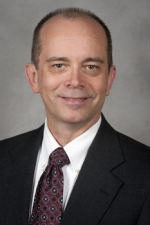 Dr. Aubrey Knight is Associate Dean for Student Affairs and Professor of Medicine and Family & Community Medicine at the Virginia Tech Carilion School of Medicine. Dr. Knight graduated from the University of Virginia School of Medicine and the family medicine residency at Carilion in Roanoke and a geriatric medicine fellowship at the University of Maryland. Dr. Knight is a board certified in Family Medicine, Geriatric Medicine, and Hospice and Palliative Medicine.
Dr. Aubrey Knight is Associate Dean for Student Affairs and Professor of Medicine and Family & Community Medicine at the Virginia Tech Carilion School of Medicine. Dr. Knight graduated from the University of Virginia School of Medicine and the family medicine residency at Carilion in Roanoke and a geriatric medicine fellowship at the University of Maryland. Dr. Knight is a board certified in Family Medicine, Geriatric Medicine, and Hospice and Palliative Medicine.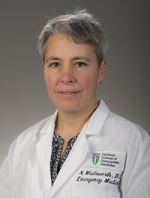 Dr. Nicole Wadsworth (D.O., FACOEP, FACEP) is an Associate Dean for Academic Affairs and Assistant Professor of Emergency Medicine. Her educational interest surrounds board preparation for medical students who struggle with academic success, inter-professional education, simulation in medical education and curriculum development.
Dr. Nicole Wadsworth (D.O., FACOEP, FACEP) is an Associate Dean for Academic Affairs and Assistant Professor of Emergency Medicine. Her educational interest surrounds board preparation for medical students who struggle with academic success, inter-professional education, simulation in medical education and curriculum development.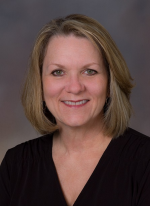 Pat Kenney-Moore EdD, PA-C is an Associate Professor, Associate Director and Academic Coordinator in the Oregon Health & Science University School of Medicine, Division of Physician Assistant Education. She is responsible for the didactic phase of the OHSU PA program and is involved in teaching, learning, assessment and remediation of PA students.
Pat Kenney-Moore EdD, PA-C is an Associate Professor, Associate Director and Academic Coordinator in the Oregon Health & Science University School of Medicine, Division of Physician Assistant Education. She is responsible for the didactic phase of the OHSU PA program and is involved in teaching, learning, assessment and remediation of PA students.